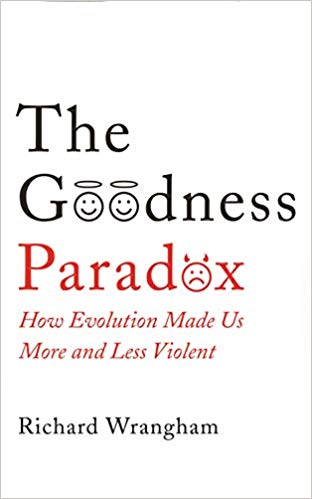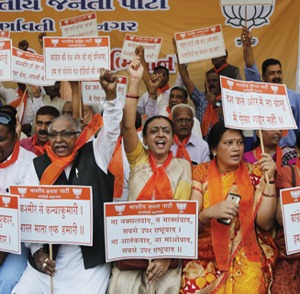
This article is a preview from the Spring 2019 edition of New Humanist
The Goodness Paradox: How Evolution Made Us More and Less Violent (Profile) by By Richard Wrangham
A paradox exists, writes Richard Wrangham, between the increasingly peaceful tendencies of the human species and the spectacular number of deaths that we rack up in war. The argument of The Goodness Paradox is that this can be explained in large part by the idea that humans are “self-domesticated”. The first to posit the notion of human domestication was 19th-century German anthropologist Johann Friedrich Blumenbach (who also invented the term “Caucasian”). But when it came to explaining what domesticated Homo sapiens, even Blumenbach invoked a divinity – leaving an unsolved question that Charles Darwin would pick up and tackle in his writings.
One of the commonalities between humans and domesticated animals is a high threshold for reactive aggression: the instinctive form of violent behaviour triggered by an external cause, as opposed to violent behaviour that is premeditated (proactive aggression). A wild animal like a wolf, writes Wrangham, is extremely quick to exhibit reactive aggression. Although it can be tamed, a wolf will never be domesticated and will therefore be liable to rip your hand off if you climb into its cage and start touching it. Humans, by contrast, are the only animals capable of banding together over the course of weeks and months to meticulously plan a murder.
Wrangham contends that capital punishment in smaller communities did a great deal to domesticate Homo sapiens. Because of the level of coordination it requires, it is entirely dependent on language. The “execution hypothesis” proposes that, historically, subordinates plotted together to discuss how they could prevent the group’s alpha males running roughshod over them all. The practice of capital punishment weeded out the most aggressive members of a community or forced them to conform. “Even though capital punishment has been widespread,” Wrangham writes, “the idea that it would have been sufficiently frequent to have evolutionary effects on aggression may seem surprising at first.” But 12,000 generations – the approximate length of time that we are estimated to have been practising capital punishment – is longer than any mammal has had to become domesticated.
Here, then, is an example of a violent practice effecting an overall decline in observable violence. “Ironically,” Wrangham writes, “executioners seem to have brought us the beginning of wisdom.” Wrangham makes clear that understanding our past does not mean admiring it. The state administering the death penalty is a different phenomenon, and one to which Wrangham is adamantly opposed. Nature, says Katharine Hepburn in The African Queen, is there for us to rise above it.
Another species that engages in violent coalitionary killing is the chimpanzee, some of our closest cousins. When researchers have pointed this out, some have strongly resisted the findings because there might be a “ripple effect”, causing violence in human societies to be legitimised or encouraged. Wrangham’s dismissal of this biological determinism – influenced, he says, by Jean-Jacques Rousseau – is wonderfully terse: the theory “belongs in the dustbin”. As on capital punishment, he is intellectually honest, pointing out that information cannot be suppressed because the implications might be messy.
Despite these qualities, it is difficult to escape the feeling that The Goodness Paradox could have been cut substantially without much impact. Wrangham will seldom make a point once when he can make it twice in the same paragraph. The book also lacks a certain fizz and humour; principally Wrangham is conveying information, rather than telling a story.
Near the close of the book, Wrangham points out that the fall in violence is bittersweet: the longer we spend in peacetime, the worse our eventual wartime casualties tend to be. Because he is not in the business of polemic, he dedicates little time to suggesting how crisis can be avoided. But, while he advocates against blind optimism, he sounds hopeful about the direction in which our species is going. We need to constantly remind ourselves how easily complex social organisations can decay, he writes. But, in another 300,000 years, “Humans could in theory become as hard to rile as lop-eared rabbits at a petting farm.”

